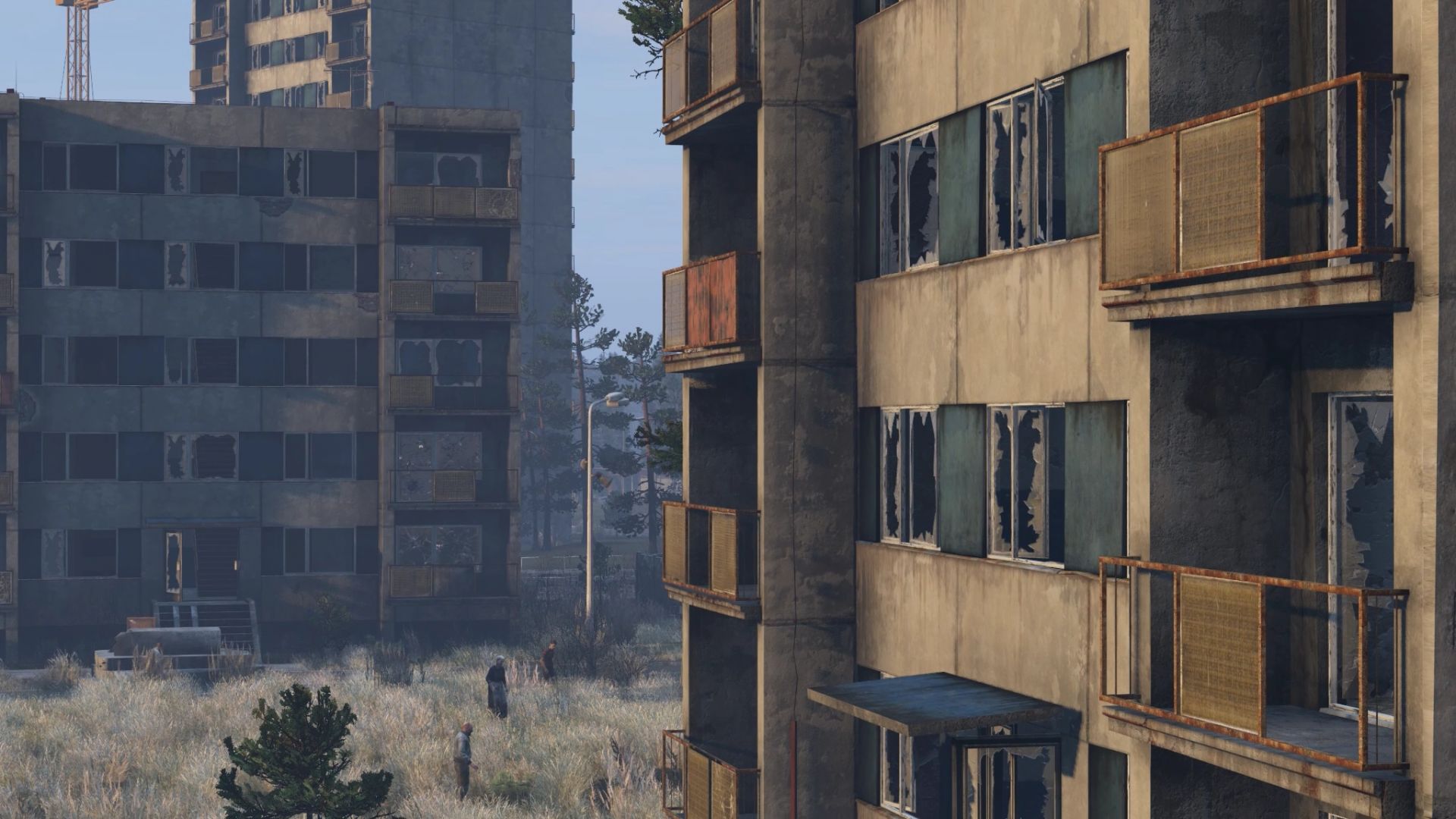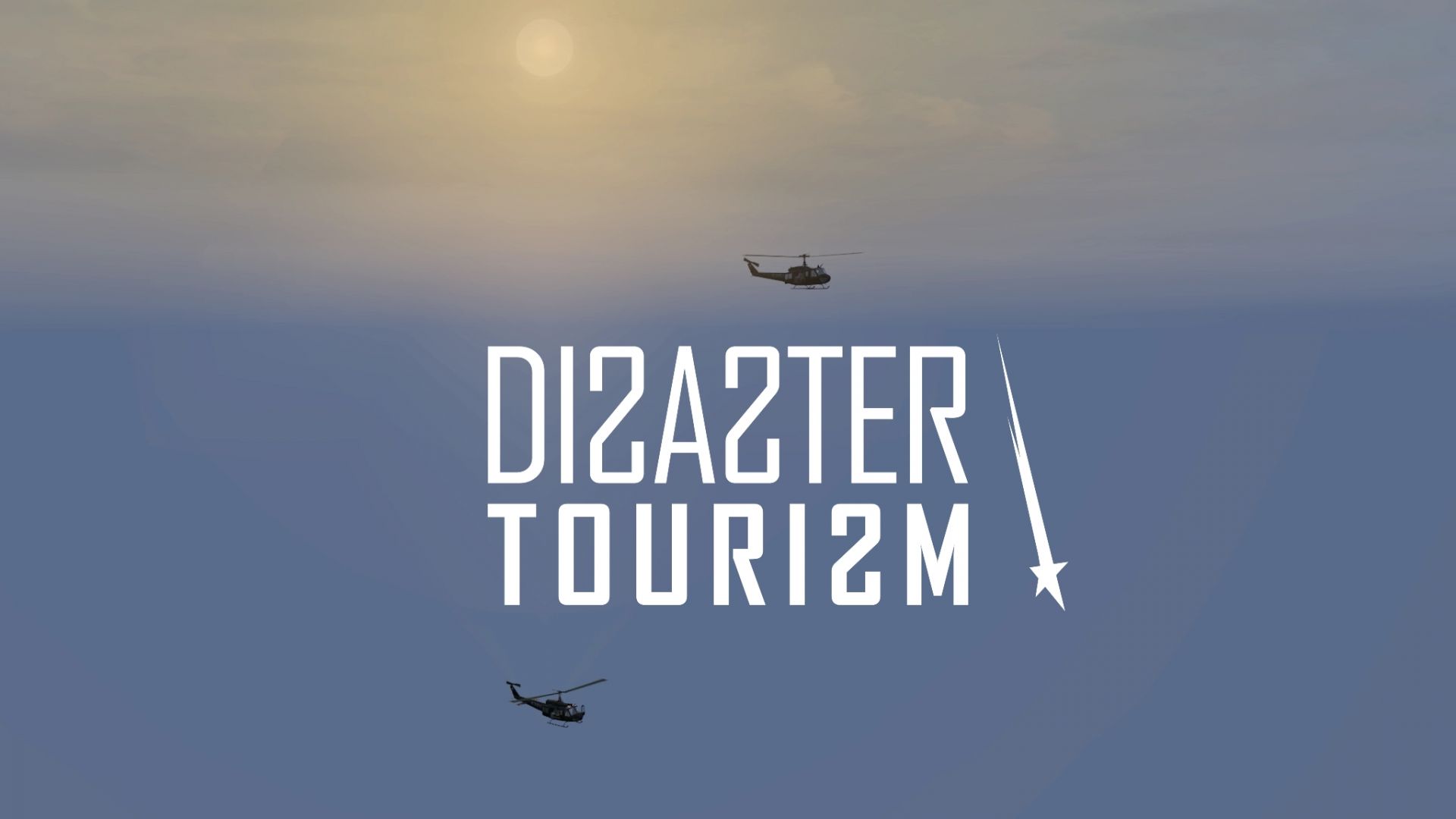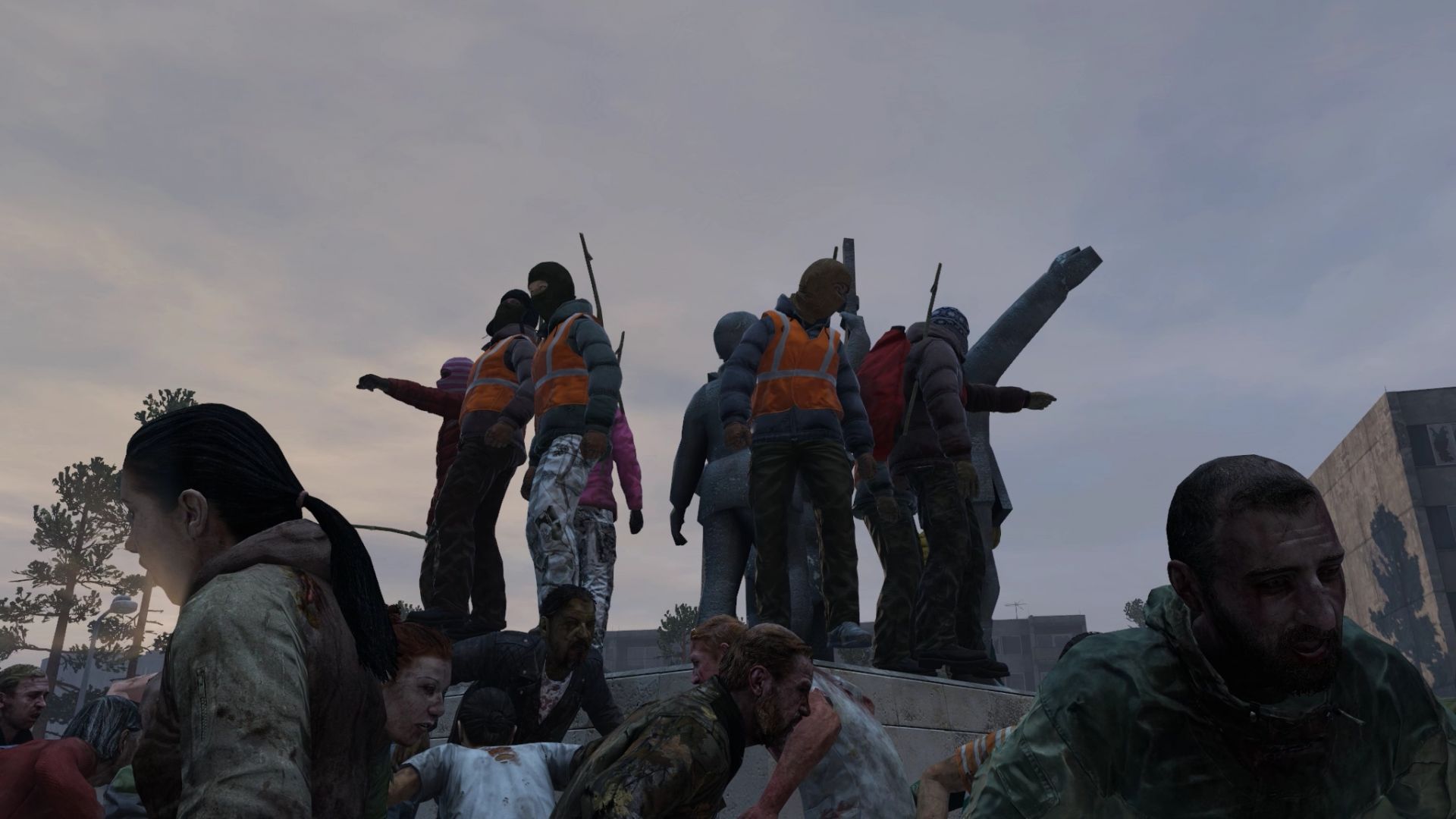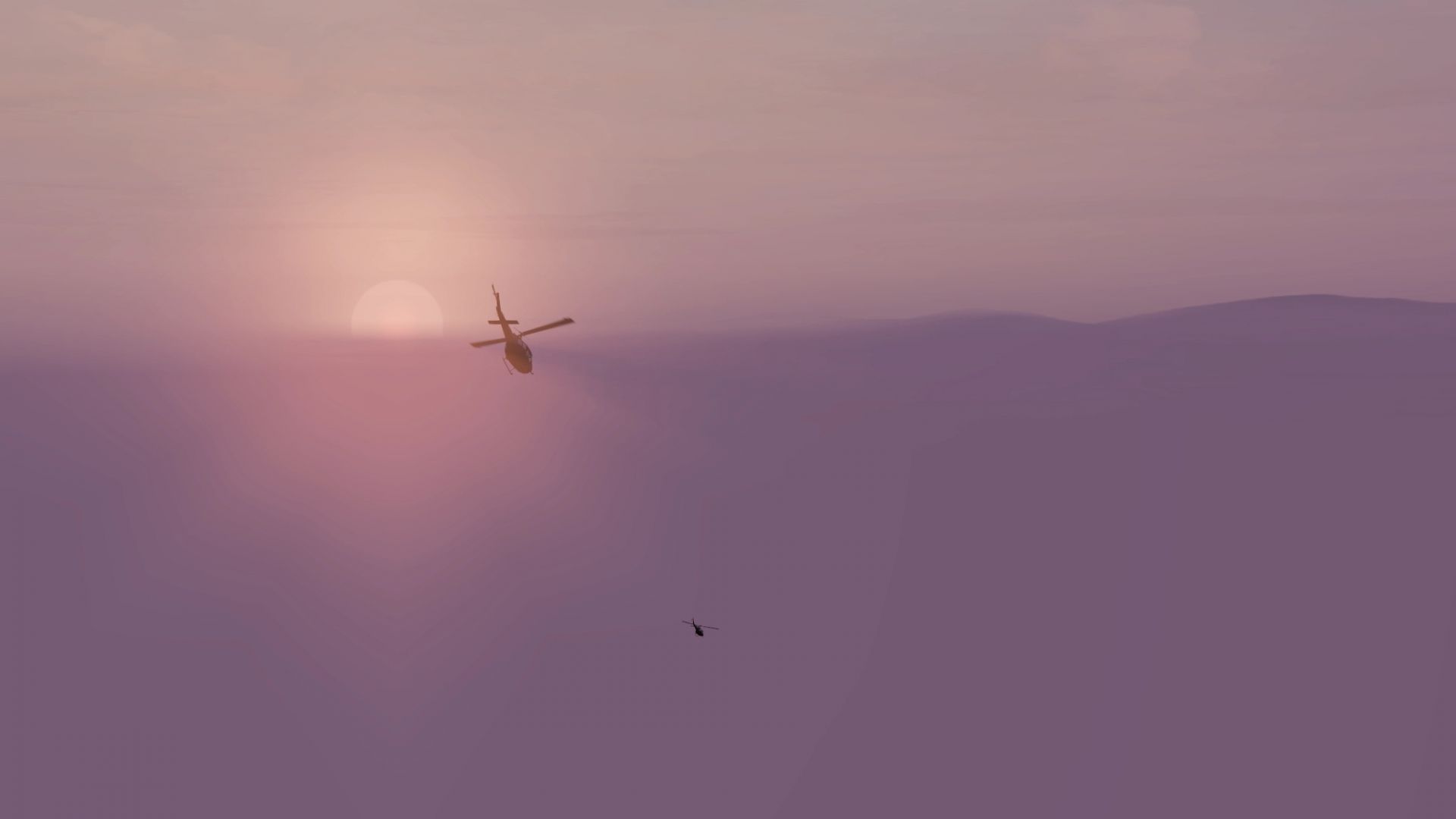Disaster Tourism
film, Dec.2021Everything started with a utopia. To end the antagonism between the oppressors and the oppressed, between the owners and the own-nothings. To create a society that would be truly free, equal and solidaric.
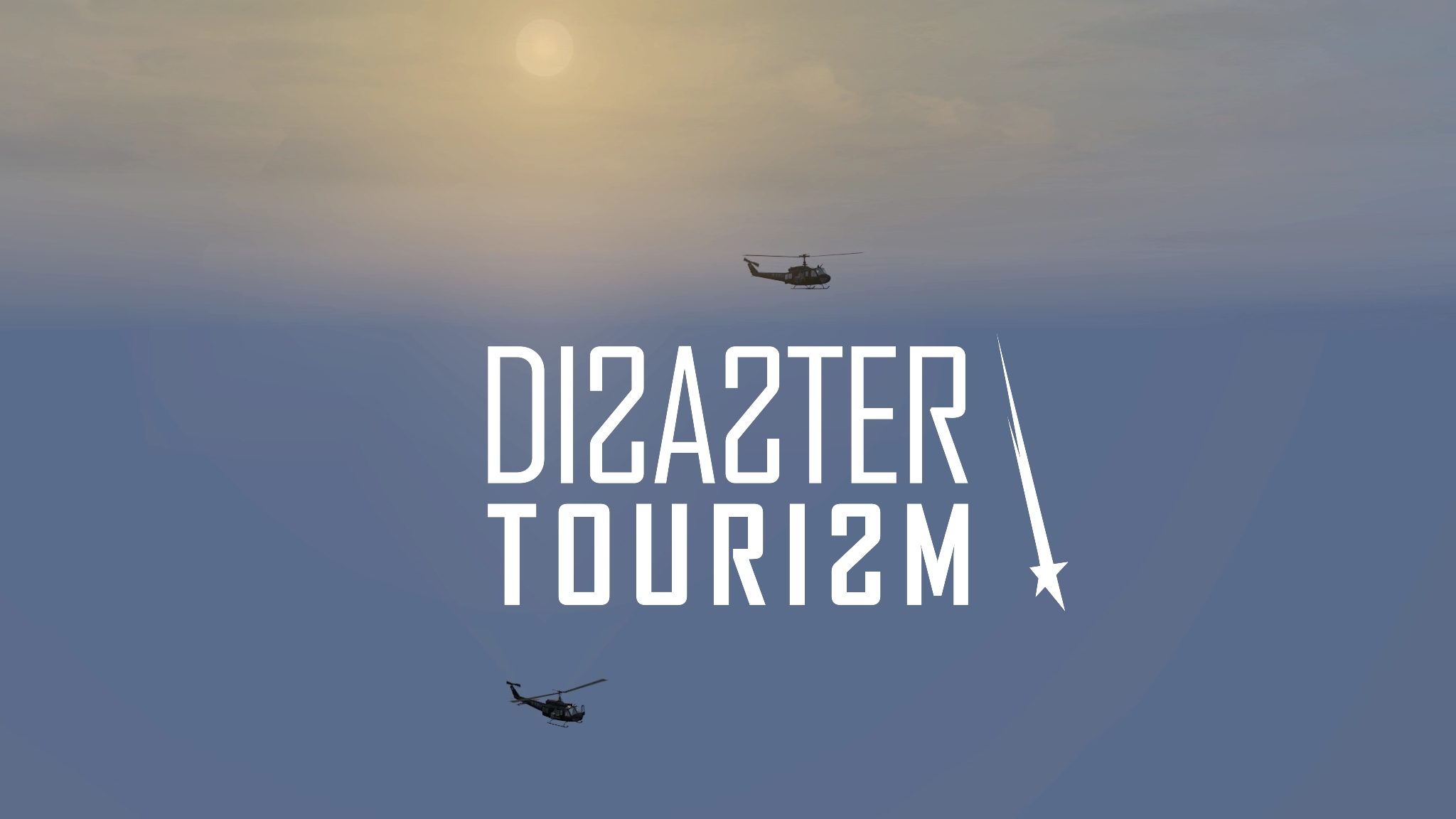
Disaster Tourism is a cinematic lecture-performance through the Russian Namalsk, a fictional island in the Bering Strait in the game DayZ. On bicycles we ride along places like the gulag city of Vorkuta, uranium mines, empty train tracks and stranded ships and discuss the representation of post-Soviet reality as a landscape of ruins.
Why is it that the remains of a society that set out to overcome capitalism are now primarily suitable as a setting for the zombie apocalypse? As the group moves through the nightmarish landscape, we talk about the depths of historical narratives as ruin porn, while choreographic elements and dance scenes turn the tour into a music video, driven by a weird feeling of dystopic hope.
The project was realized as part of the "Open" program for the 17th Architecture Biennale in 2021, before the escalation of the Russian war of aggression against Ukraine. The context of the work has changed radically since then, but its topic has, as we think, lost none of its relevance.
By Total Refusal (Adrian Haim, Jona Kleinlein, Robin Klengel, Susanna Flock, Leonhard Müllner)
Open - Russian Federation Pavilion 2021
17th Architecture Biennale, Venice
Liza Dorrer, Vladimir Nadein, Dasha Nasonova (Сo-curators)
Mattia Inselvini, Marco Gambarè (2050.plus)
Music & Sound
Глава II // Glava II
Supported by: BMKOES Sektion IV - Art & Culture, Startstipend
Total Refusal
